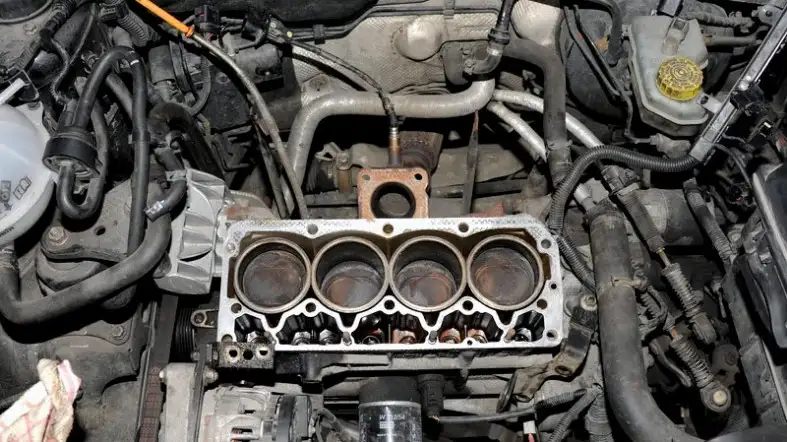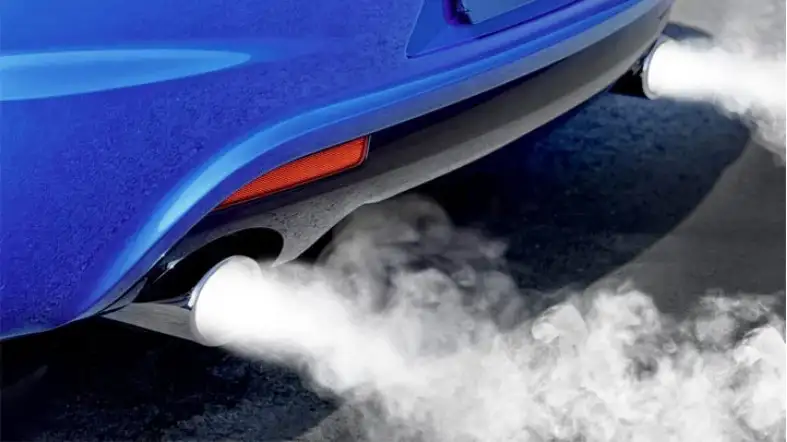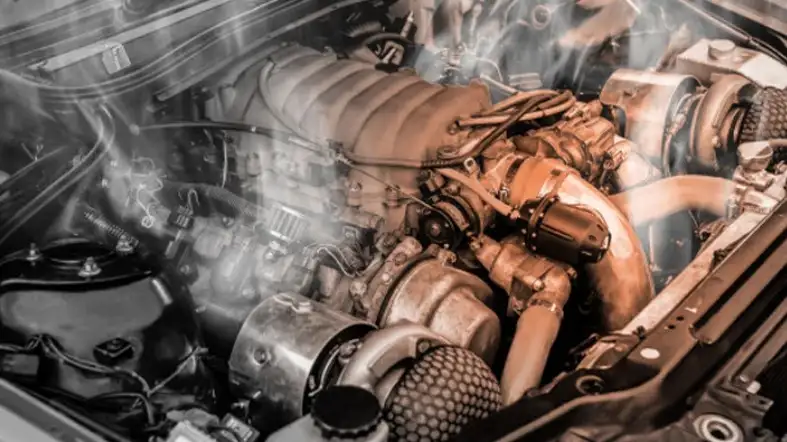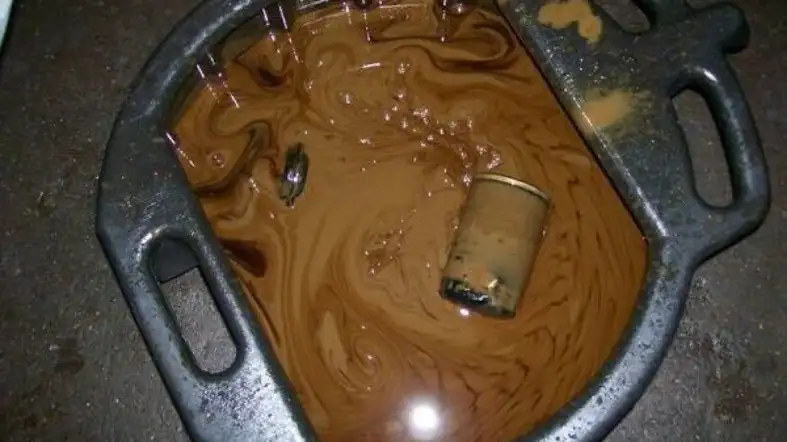A cracked engine block is quite a common yet costly problem for a car owner. And experiencing unusual sounds around the engine makes the owner nervous.
But the reality is that a cracked cylinder head or blown head gasket can also produce sound.
Thus, knowing what does a cracked engine block sound like can avoid misunderstanding. And it can help the owner take the right step based on the original source.
Besides, we have listed some common signs of a cracked engine block so you can identify it easily and prevent a costly repair.
What Does A Cracked Engine Block Sound Like?
A cracked engine block can produce a chorus of sounds. If the exhaust gasket leaks, it also causes lauds noise. A gasket is placed between the engine block and the exhaust manifolds.

Common Signs of a Cracked Engine Block
Plenty of reasons are responsible for the cracked engine block. Among them, the most potential reason is excess heat, and a coolant issue causes this issue.
When it happens, the overheated area of the engine starts expanding. Yet, the cooler portions remain stable.
Thus, the engine block faces all the stress, resulting in a crack forming in the engine block.
An engine block can crack if contaminants enter into the metal of the parts while manufacturing it. Although the engine block can crack for plenty of reasons. The most common reasons are:
White Smoke From The Exhaust Pipe

Coolant runs through the engine through passages. But a cracked engine block allows the coolant to disclose into engine cylinders.
After that, the coolant starts burning in the cylinder all through the combustion method. Hence, the engine block produces white smoke that comes out of the tailpipe.
For the same reason, the vehicle owner can also experience sweet, smelly exhaust fumes. In most cases, black or dark gray smoke comes out from beneath the hood.
Apart from the cracked engine block, the exhaust pipe can produce smoke due to rough idle or lack of power.
How To Drill Out Broken Bolt In Engine Block?
Coolant or Oil Leaks
A cracked engine block is also responsible for the leakage of the internal or external coolant. Depending on the position of the crack, it can cause an external engine oil leak.
Engine Overheating

If the engine block cracks, it prevents the coolant from flowing through the engine. Thus, the engine begins overheating.
Rough Running and Misfiring
Sometimes, a cracked engine block causes loss of compression. As a result, the engine started misfiring and running roughly.
Combustion Gases in the Cooling System
If the engine block gets cracked, it lets the combustion gases go into the cooling system. Hence, it produces a massive number of bubbles in the coolant before boiling. It also put the cooling system under severe stress.
Illuminated Warning Lights
A cracked block can activate low coolant level light, the check engine light, and the engine over-temperature light. If your car has a temperature gauge, you will notice it to start climbing.
Antifreeze and Oil Mixing

After completing a coolant flush or oil change, a mechanic needs to note the color of the liquid that he removed. This way, he can ensure the engine is in regular condition as it should be.
If he notices the oil and antifreeze are mixing, then it will seem like a cloudy white fluid. And it indicates that the engine block is cracked somewhere between the passages.
Poor Engine Performance
A considerable reduction in engine power is the most noticeable symptom of a cracked engine block. If the engine gets cracked, it will cause an issue with low engine compression.
Thus, it will lead to a lack of combustion pressure. At a time, this problem will produce other serious issues like a major decrease in fuel efficiency and rough idle.
FAQs
Should I Drive With A Cracked Engine Block Sound?
As long as the sound doesn’t irritate you, you can keep driving with your cracked engine block. For the engine, driving with a cracked engine block is pretty much the same as driving a car with other problems.
You can drive with a cracked engine block for a short run to take the car to a home garage or the auto shop. But in the long run, it can make the condition of the engine worse and lead to an expensive repair.
How Expensive Is Fixing A Cracked Engine Block?
It may cost around $1,000 to $3,000 to repair a cracked engine block and prevent it from producing sound.
Yet, all the cracked engine blocks don’t need to go through repair. In some cases, you may need to replace the engine, which will cost you quite a bit of money.
At What Temperature Can The Engine Block Get Cracked?
At 40 degrees Celsius, or -36 Fahrenheit, the radiator and the condenser of an engine start to solidify, and it ends up causing failure or cracking down.
Final words
Engine blocks come from durable metal. It holds the interior parts of the engine and the combustion chambers.
Though engine blocks get cracked very hard, they can occur for many reasons. So, knowing what does a cracked engine block sounds like is a crucial skill in identifying the issue at the initial stage.
Yet, the signs of the cracked engine block we mentioned above will also help you determine the real reason.
Once you become sure about the cracked engine block, take the car to a local auto repair shop for the safety of the vehicle and you as well.

